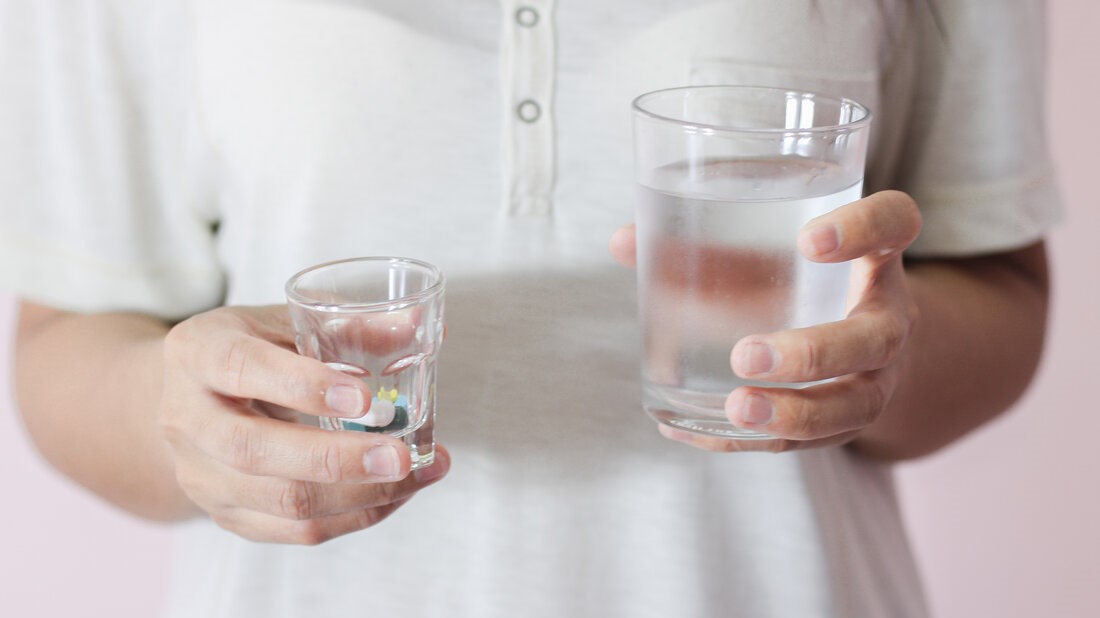Medication-Assisted Treatment
Medications for substance use disorders are often essential to a safe, successful recovery process. Medication-Assisted Treatment (MAT) utilizes carefully prescribed, FDA-approved medications to help individuals with substance use disorders overcome their reliance on drugs or alcohol. The medication used is tailored to the individual as well as to their substance of choice, both to reduce cravings and mitigate withdrawal symptoms. This way, the patient can focus on the next steps to recovery.
Why We Practice MAT at Maryland Recovery
There is a misconception that medication-assisted programs simply replace one substance problem with another. This couldn’t be further from the truth. With careful planning, oversight by a team of experts, and adherence to the program, individuals can experience complete freedom from drugs, alcohol, and harmful medication use.
MAT is seldom used alone; in fact, it is designed to be used alongside counseling, therapies, and other techniques to provide a whole-person approach to healing from SUD. This approach is used at Maryland Recovery because it is the most effective way to help people learn how to maintain a clean and sober life after treatment ends.
At Maryland Recovery, MAT-adjacent strategies like counseling, behavioral therapy, and other therapeutic techniques provide numerous ways to address the root of the issue so patients can learn the tools necessary to prevent relapse in the future. Medication is just one aspect of our comprehensive MAT program and helps to make withdrawal and other negative symptoms easier to handle.
Addiction and Withdrawal
Substances like alcohol, opioids, and benzodiazepines are extremely addictive and can have devastating effects on the body and brain with prolonged use. Unfortunately, they continue to cause negative effects even after patients cease using them. This disrupts the brain’s natural production of producing chemical messengers, especially the feel-good chemicals like dopamine and serotonin that participate in the brain’s reward center. With consistent use, the brain is no longer able to regulate itself with these chemical messengers. The resulting imbalance leads to symptoms of withdrawal since the body and brain need the substance to function without negative symptoms.
In general, the longer in term and the more severe the SUD, the more severe the symptoms of withdrawal can be. However, people may experience withdrawal symptoms after just a few uses of drugs like opioids. In minor cases, a person may experience flu-like symptoms like chills, shaking, congestion, nausea, vomiting, sweating, insomnia, and fatigue, in addition to cravings, irritability, anxiety, and depression. In extreme cases, withdrawal can be life-threatening, causing symptoms like seizures and hallucinations.
The MAT program at Maryland Recovery was developed to address the symptoms of withdrawal to create a safe environment for healing and preventing relapse. Many MAT medications interact with the same receptors in the brain as the substance of choice but do not cause euphoria, which is often the main reason for substance use. However, they do reduce or eliminate the cravings and withdrawal symptoms that so often lead to relapse. This provides a more comfortable transition into sober living.
Opioids
MAT is essential for individuals seeking recovery from opioid use disorder. As the opioid crisis continues to rise across the country, the ease of access to these drugs, along with their addictive qualities, has led to significant increases in the number of overdoses and deaths. Unfortunately, many individuals with OUD develop a dependence on a prescribed medication used to relieve chronic pain. It can be difficult to stop using pain medication initially due to the resurgence of pain, but as the cause of pain subsides, the severity of the withdrawal symptoms experienced without long-term medication can lead to illicit opioid use.
Abruptly ceasing opioid use can create a variety of severe withdrawal symptoms, including vomiting, increased heart rate, seizures, and hallucinations. MAT can help reduce or prevent these side effects during a medically supervised tapering program. With MAT therapy at Maryland Recovery, patients can cease opioid use safely, minimize side effects, reduce cravings, and restore the balance of the body and mind for participation in other therapies like behavioral therapy, group therapy, and holistic therapies. This helps to reduce the likelihood of relapsing and make the transition to sober living more comfortable.
Alcohol
Alcohol is a highly addictive substance that is easy to obtain. Since it is easily found and legal to purchase, individuals experiencing physical and emotional distress may resort to self-medicating with alcohol to dull that pain. Combined with excessive drinking and heavy use for an extended period, these aspects describe alcohol use disorder, or AUD. Unfortunately, alcohol has a high susceptibility to addiction, and due to the way it interacts with the body and brain, it can be an extremely difficult substance to stop using.
When consumed heavily over an extended period of time, alcohol can change the brain’s normal pathways and disrupt the balance of essential chemical messengers known as neurotransmitters. Ceasing alcohol use abruptly can be dangerous, if not life-threatening depending on your level of dependency. MAT at Maryland Recovery can help minimize or prevent the dangerous withdrawal symptoms that are commonly associated with alcohol addiction, including vomiting, nausea, body aches, anxiety, depression, brain fog, and even seizures. After we’ve helped patients mitigate the symptoms of withdrawal and reduce cravings, they can focus on the other aspects of their healing journey.
Stimulants and Benzodiazepines
Long-term misuse of stimulant medications like Adderall and prescription amphetamines, as well as the use of illicit stimulants like cocaine, crack, methamphetamines, and PCP, can functionally change the neurochemical pathways in the brain. This can create an imbalance that sends mixed messages to the brain, impacting physical health, how a person feels, and how they react to various situations. The misuse of benzodiazepine sedatives like Xanax, Valium, and Klonopin can alter the brain’s reward system, eliminating the potential for positive feelings without the drug.
Withdrawals from stimulant use can cause anxiety, depression, and suicidal thoughts that can range in severity. Benzodiazepine withdrawals can cause high anxiety, muscle spasm, and seizures. MAT at Maryland Recovery can reduce the negative effects of withdrawals and cravings by restoring chemical balance so patients can receive the benefits of counseling, therapy, and peer support.
Maryland Recovery has provided effective, affordable drug and alcohol treatment to residents of Maryland and the surrounding states for over two decades. Our programs are research-backed and personalized to each client to ensure the greatest chance of long-term success. We utilize psychotherapy, group therapy, MAT, holistic therapies, and more to diagnose and treat individuals with substance use disorder (SUD) along with co-occurring mental health disorders.
Seeking treatment for SUD is a major step. You’ve accepted that substance use has made your life unmanageable, that you need help to find recovery, and that you are ready to make a change. The next crucial step is finding the right program for you. While there are a number of treatment programs in the area, Maryland Recovery offers the research-backed, personalized programming you need to reach lasting recovery. For many of our clients, medication-assisted treatment is a vital component.

Medications Used in MAT
No two substance use disorders are the same. That’s why MAT at Maryland Recovery is carefully designed to ensure each patient receives the best-fitting medication for their needs.
The most commonly used medications include the following:
Vivitrol
Vivitrol is a non-addictive, once-monthly injection that blocks the effects of opioids and alcohol by preventing the substance from binding to the receptors of the brain. This prevents the euphoric high associated with the misuse of these substances and reduces cravings, decreasing the risk of relapse. This medication is available generically as naltrexone.
Methadone
This medication has been used for decades to help individuals reduce or cease their use of opioids. Methadone works by binding to opioid receptors, altering the way the brain and nervous system respond to pain. This also has the effect of reducing pain and blocking the euphoric effects of opioid drugs. Methadone comes in various forms, including pills, liquids, and wafers.
Buprenorphine
Buprenorphine is commonly used to treat opioid use disorder. Though it is available in a variety of forms, suboxone has become a popular choice for many medical professionals and recovery centers. Unlike other medications that completely block the euphoric effect of opioid drugs, buprenorphine provides some effects at a much lower dose. This helps to reduce physical dependency and mitigate withdrawal symptoms.
Each of these medications is FDA-approved and comes in various forms to meet the needs of the individual. At a treatment center like Maryland Recovery, each individual will work closely with a professional SUD recovery team to determine the medications, dosages, and accompanying therapies that best suit their unique needs.
Eligibility for Medication-Assisted Treatment
Determining eligibility is best discussed with a doctor or professional from a rehabilitation facility. At Maryland Recovery, we have the expertise and experience needed to help you determine which therapies are essential for your recovery. We can help you explore your treatment options to create a comprehensive program that meets your needs and gives you the best chance at long-term sobriety.
Maryland Recovery’s MAT program is available to all adults over 18 years of age who are experiencing substance use disorder but do not need 24/7 medical care. For those who need intensive inpatient detox, we work with other programs and facilities in the area. Our admission counselors can help determine if our program is right for your path toward recovery. To determine whether you are ready for our outpatient programs or if you may need an intermediate step, reach out to Maryland Recovery.
Medically Assisted Treatment Options at Maryland Recovery
It’s important to remember that successful medication-assisted treatment never relies solely on the use of medications. Instead, medication-assisted treatment is just one component of a comprehensive treatment plan tailored to each person’s needs. At Maryland Recovery, MAT occurs alongside counseling and behavioral therapies, as well as group therapy, holistic treatments, and more. While the medication helps address the chemical imbalances within your brain, attenuating withdrawals and cravings, trained professionals help you navigate the practical aspects of overcoming a substance use disorder.
At Maryland Recovery, we are proud to provide a wide range of treatment options, including MAT. Any individual seeking help with a substance use disorder can work with our counselors to create the right program to suit their needs. Our outpatient and sober living services provide a fighting chance for long-term recovery, including medication-assisted treatment, group therapy, psychotherapy, and holistic individual-focused therapies.
Contact us today to schedule a conversation with our counselors.











